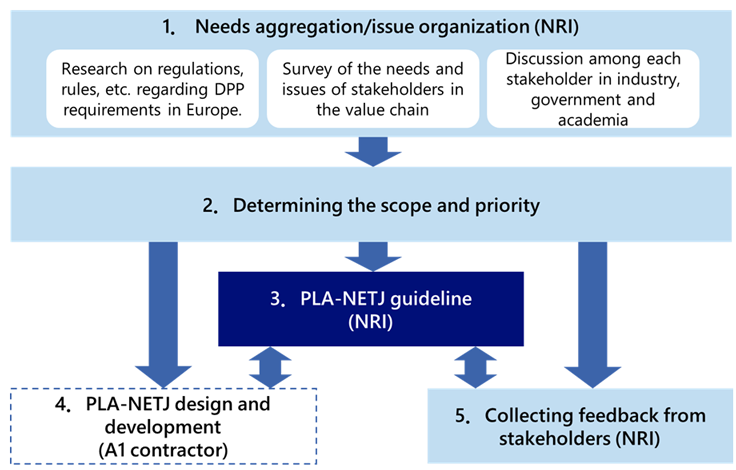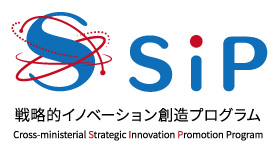A2-01 Requirement definition and rule formation for digital product passport in Japan
Principal Investigator
ITSUKI Seichu (Nomura Research Institute, Ltd.)
Research and Development overview
Based on the rules and regulations regarding the DPP requirements in Europe, rule-making (incl. data security, data access control, etc.) related to the data format required for the collaboration among the plastic value chains in Japan, will be carried out. In this research, the discussions and opinions of a wide range of stakeholders from industry, government and academia will be taken into account. Additionally, the existing individual company traceability systems and the “PLA-NETJ” that will be developed in parallel with this research under the CE-SIP project will be referenced.
By conducting verification on the production and use of recycled plastics and data linkage in supply chains, we will ensure that the rules and requirements are in line with reality and improve the effectiveness of “PLA-NETJ”. In addition, we will create, disclose, and update the guidelines to promote the use of “PLA-NETJ” and improve the consistency and connectivity with the Battery Passport and other DPPs that are already being developed.
For comments and inquiries about the Guidelines, please contact
ITSUKI Seichu (Nomura Research Institute, Ltd.)
sip-ce[]nri.co.jp
*Please convert [] to @
Progress and Achievements
In FY2023, we identified the needs of stakeholders, listed the data items that should be included in the guideline, then organized the data utilization scenarios as well as issues related to data handling (such as the permissibility and conditions for acquisition and disclosure). In addition, we discussed with the relevant government ministries about the issues to be addressed in formulating the first draft of the guidelines and the ideal form of industry-academia-government collaboration. At the end of March, we also held a cross-sectoral meeting to discuss the agendas mentioned above.
In FY2024, we conducted scenario analysis and organized the elements based on the data items, needs, and issues identified through the hearings conducted in FY2023. In the process of organizing the data, we checked and adjusted the data items with those being considered in the development of PLA-NETJ and the development of a matching application for recycled plastics. Through these activities, we unified the categories and terminology.
After compiling the results of these discussions and confirming through discussions with the relevant ministries, the guideline ver. 0 (discussion paper) was released in January 2025, and its English version was released in March 2025 (see top of this webpage). We are now accepting feedback from diverse stakeholders in Japan and overseas in preparation for gradual updates in FY2025 and beyond (see top of this page).

Overview image of the entire research period

